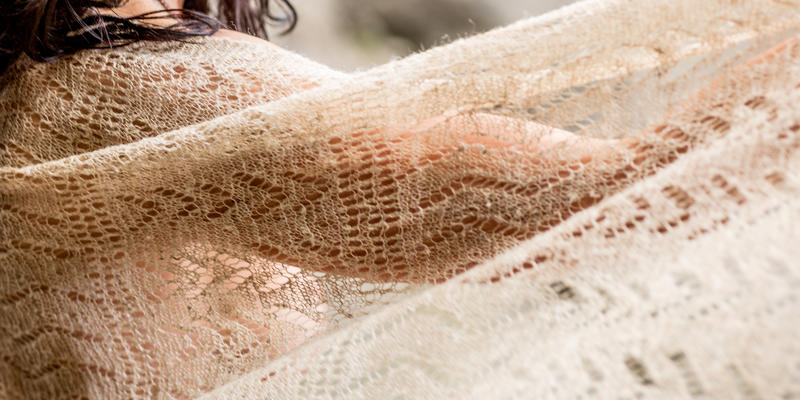
Mary Wutz is on a mission: a mission to change the way we view clothing.

Mary Wutz, herbalist & owner/designer of Seam Siren
As the owner and designer of Seam Siren, a clothing line based out of Maui, Mary sees clothing not just as decoration, but as a natural extension of the Earth and of our porous, permeable, absorbent bodies. Seam Siren visited Charleston, SC for this year's Charleston Fashion Week, where I caught up with the fashion designer at her event at Rebekah Jacob Gallery on King Street. At Saltwater Chef, we believe health is a way of life that comes from outdoor play, healthy and clean food intake from whole foods, healthy attitudes and relationships, and unity with both the Earth and with your own body. So when I heard about Wutz's line of organic clothing, I was intrigued. Refreshing mixed drinks made from Maui's gluten-free Ocean Vodka and Runa Clean Energy Hibiscus Juice were served, and Seam Siren's line of gorgeous organic clothing was on display.

Mary, having studied and trained in Nepal, Peru, Ecuador, and Hawaii as a phytoherapist and herbalist, possesses a deep understanding of plant chemistry, and of the powerful healing and medicinal properties of plants and herbs. Mary is passionate about healing from nature. While abroad, the young designer learned of ancient cultures that would soak fabrics in anti-inflammatory turmeric for as a way to administer medicine. So, if our skin can absorb medicines, does it not work in the reverse, absorbing the toxic dyes, fumes, and fibers of modern synthetic clothing? This theory led Wutz down a path of studying natural plant dyes and fibers to create a business based on the idea of "clothing as medicine."

Mary spent several month with Rebecca Burgess, author of Harvesting Color and founder of Fibershed, a program that teaches sustainable agriculture and clothing production through the use of natural dyes and fibers. Many of Burgess's theories are based on Native American practices of making dyes from native plants. As Seam Siren explains, "We place our focus on using plants that have known medicinal properties, are considered invasive to the land, or can be grown sustainably. Each dye plant is hand harvested and processed into small-batch dye baths blending plant material with flower essences to create a truly unique and one of a kind concoction. Each dye bath is created with a set healing intention with the medicinal properties of the herbs and flower essences in mind."

Seam Siren uses Nepalese Nettle and Organic Cotton and organic plant dyes to create their clothing. "Our nettle fiber is harvested by hand, sourced from a women’s cooperative in the Sankhusaua district in the eastern Himalayas of Nepal, located at 6,000 feet in the jungle and a two-day trek from the closest town. This nettle is recognized as the highest quality nettle in the region." The clothing line employs Nepalese women from a cooperative, paying them a living wage and incorporating each individual into the life of the company.

"Seam Siren aims to increase consumer awareness around the use of toxic residues in textiles and its negative health impact. Our skin is our largest organ and is permeable to substances that come in contact with it, including synthetic chemicals. Not only are the chemicals used in synthetic dyes poisonous to our bodies, they are also extremely harmful to the environment. They are often highly toxic, carcinogenic, or explosive and are being dumped into freshwater sources despite strict regulations. Natural dyes are available that do not have an effect on your health and the environment." Here are just a few:


Seam Siren clothing can be purchased in Charleston at One Love Design on King Street.